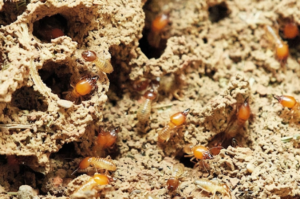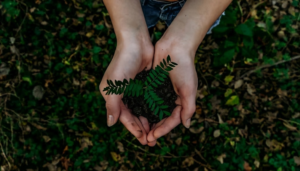In an age where environmental concerns are at the forefront of public discourse, the approach to pest management requires a significant shift. Traditional pest control methods often focus on immediate solutions, utilizing chemicals that can harm both target pests and the surrounding ecosystem. This blog explores the importance of sustainable pest management, emphasizing its role in safeguarding local ecosystems.

Understanding Sustainable Pest Management
Sustainable pest management combines various practices aimed at controlling pest populations while minimizing harm to the environment. This strategy emphasizes the use of biological controls, habitat management, and eco-friendly pesticides. According to Green Pest Management, to learn how to fight pests you need to understand them. By recognizing the behavior and lifecycle of pests, effective strategies can be implemented that do not compromise local flora and fauna.
Traditional methods, which often involve blanket pesticide applications, can lead to pesticide resistance among pests. This resistance can create a cycle where stronger chemicals must be used, further harming the environment and non-target species. Sustainable approaches aim to interrupt this cycle by employing integrated pest management (IPM) techniques, which consider environmental factors and pest dynamics.
The Importance of Biodiversity
Biodiversity is important in maintaining ecosystem stability. When pest control methods disrupt the balance of local ecosystems, it can lead to unintended consequences. For instance, using broad-spectrum pesticides can eliminate not just pests, but also beneficial insects such as pollinators and natural predators. This loss of biodiversity can reduce crop yields and disrupt food chains, leading to further ecological imbalance.
Sustainable pest management is a holistic approach that advocates for practices aimed at safeguarding biodiversity. By fostering the proliferation of natural predators like ladybugs and birds, pest populations can be effectively controlled without the need for detrimental chemical interventions. This contributes to efficient pest management and plays a critical role in maintaining the overall health and balance of the ecosystem.
Protecting Water Resources
Chemical runoff from conventional pest control methods can contaminate local water resources. When pesticides enter water systems, they can harm aquatic life and disrupt ecosystems. Sustainable pest management strategies focus on minimizing chemical use and preventing runoff through targeted applications and alternative control methods.
For example, introducing beneficial nematodes can help manage pest populations without the need for chemical interventions. These microscopic worms attack pests in the soil, reducing their numbers naturally. Implementing such techniques helps protect water resources and ensures that local wildlife, including fish and amphibians, are not adversely affected.

Soil Health and Pest Management
Soil health is integral to sustainable pest management. Healthy soils support robust plant growth, which can naturally deter pests. Practices like crop rotation, cover cropping, and organic matter addition can improve soil health and resilience, making plants less susceptible to pest infestations.
Sustainable pest management encourages these practices, which enhance soil quality and reduce the need for chemical treatments. When plants are strong and healthy, they can better withstand pest pressures, creating a more balanced ecosystem. This holistic approach recognizes that soil health directly correlates with pest management success.
The Role of Education and Community Involvement
Education is a cornerstone of sustainable pest management. Community involvement in pest management practices fosters a sense of responsibility and awareness. Workshops and educational programs can inform the public about the importance of sustainable practices, leading to widespread adoption.
Engaging the community in discussions fosters knowledge-sharing on local pests and effective management strategies and cultivates a sense of collective responsibility toward environmental stewardship. Through partnerships with local pest control experts and environmental organizations, communities can collaboratively design nuanced pest management plans that account for the unique biodiversity and environmental conditions of the area.
Economic Benefits of Sustainable Practices
While the initial costs of sustainable pest management methods may seem higher than traditional approaches, the long-term economic benefits are significant. Sustainable practices can lead to reduced pesticide costs, lower healthcare costs from fewer pesticide-related illnesses, and improved crop yields due to enhanced ecosystem health.
Farmers who adopt sustainable pest management techniques often see increased profits as a result of healthier crops and reduced input costs. Moreover, consumers are increasingly seeking eco-friendly products, which can provide a market advantage for those who prioritize sustainability in their pest management strategies.
Sustainable pest management is crucial for protecting local ecosystems. By understanding pest behavior, promoting biodiversity, and minimizing chemical use, we can create a healthier environment for ourselves and future generations. Education and community involvement play significant roles in fostering sustainable practices, ensuring that our approaches to pest management are both effective and environmentally responsible. As we face growing environmental challenges, embracing sustainable pest management offers a pathway toward a balanced and thriving ecosystem.



